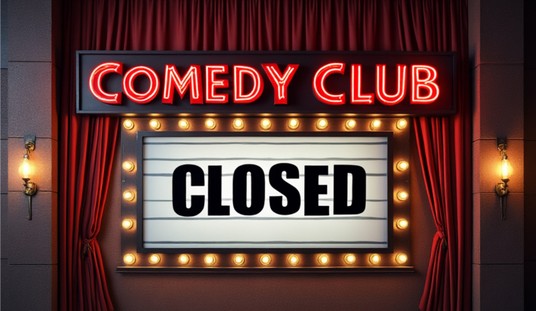True the Vote and Judicial Watch have reached a “historic” settlement with Ohio to ensure clean voter rolls in that state. The settlement is historic because it marks the first case brought by a private party under Section 8 of Motor Voter against a state to require the clean up of corrupted state voter rolls. Last fall, the American Civil Rights Union reached settlements with two Mississippi counties under the same voter roll clean up law.
As PJ Media has reported for years, private parties have been forced to bring these cases because Eric Holder’s Justice Department has lawlessly shut down enforcement of Section 8 of Motor Voter, allowing millions of dead and ineligible voters to clog the rolls.
The Judicial Watch press release:
Judicial Watch, True the Vote Reach Historic Settlement with State of Ohio in Lawsuit over Clean Voter Rolls
(Washington, DC) – Judicial Watch and True the Vote announced today that they have reached a settlement in an August 30, 2012, lawsuit against election officials in the State of Ohio, resulting in an agreement by Ohio Secretary of State Jon Husted to take a series of actions to further ensure that the state is in compliance with the National Voter Registration Act (NVRA). The Judicial Watch/True the Vote lawsuit charged Ohio election officials with failing to take reasonable steps to maintain clean voter registration lists as required by Section 8 of the NVRA.
Under the terms of the settlement, which extend through November 2018, the State of Ohio specifically agreed to take the following nine actions relating to voter roll list maintenance and NVRA compliance:
a. To participate in the State and Territorial Exchange of Vital Events (STEVE) to obtain out-of-state death information.
b. To participate in the Interstate Voter Registration Cross-Check program administered by the Kansas Secretary of State to identify registered voters who have moved out-of-state.
c. To use Ohio Bureau of Motor Vehicles data to identify registered voters who move within Ohio, with frequent updates being sent to local officials.
d. To use an online voter registration change of address website to encourage voters to keep their registration information current.
e. To conduct a special, monthly, duplicate registration elimination program, within defined technical thresholds, for all Ohio County boards of election voter lists.
f. To keep online, and available for public access, a current voter registration list.
g. To require the county boards of election to send accurate survey information to the Secretary of State’s Office, to be compiled and forwarded to the Election Assistance commission for its NVRA-related surveys.
h. To use reasonable efforts to promote the expanded use by recent college graduates of Ohio’s online voter registration change of address system, including education to remind college graduates to keep their voter registration addresses and information current and to request necessary updates; and to endeavor to coordinate these activities in conjunction with Ohio’s colleges and universities.
i. To direct boards of election to send confirmation notices annually to voters who may be inactive; and to query boards of election on a regular basis as to whether this direction is being followed.
The legal action against the State of Ohio began in February 2012 when Judicial Watch sent a letter to Husted notifying him that the state was in violation of Section 8 of the NVRA. Judicial Watch subsequently filed its lawsuit in partnership with True the Vote on August 12.
“This settlement marks a milestone in the fight to make certain that voter rolls are being properly maintained across the state; helping to assure the public that the most basic principles of federal election law are being upheld; and helping to restore Ohioans’ faith in the integrity of our voting system,” said True the Vote President Catherine Engelbrecht.
“Election officials in the State of Ohio are to be commended for shouldering their responsibility to maintain clean voter registration lists. This is a historic settlement, the first of its kind in the history of the National Voter Registration Act. Dirty election rolls can lead to voter and election fraud. Under the terms of this groundbreaking settlement, the people of Ohio can now rest easier that their elections will be cleaner, beginning with the 2014 elections. The problem of dirty rolls is a nationwide problem, and Ohio’s good faith steps to address it can serve as a model for other states,” stated Judicial Watch President Tom Fitton.
As part of its Election Integrity Project, Judicial Watch found that voter rolls in a number of states contained a great number of registrations for individuals who were ineligible to vote. Judicial Watch notified a dozen states that they must clean up their voter registration lists or face lawsuits. Judicial Watch and True the Vote subsequently filed lawsuits against election officials in Indiana and Ohio, and prompted the state of Florida and other states, without litigation, to remove thousands of ineligible voters from state registration lists. According to independent research published by Pew Charitable Trusts in February 2012, approximately 24 million active voter registrations throughout the United States – or one out of every eight registrations – are either no longer valid or are significantly inaccurate.
Judicial Watch is partnering with True the Vote and the Election Law Center’s J. Christian Adams, who previously served in the voting rights section of the Department of Justice, on a nationwide campaign to ensure the integrity of elections. The groups are represented in Ohio by the law firm Langdon Law LLC.
As the release notes, I also served as counsel on the case. True the Vote’s statement can be read here (with links to a PDF of the settlement agreement).










Join the conversation as a VIP Member